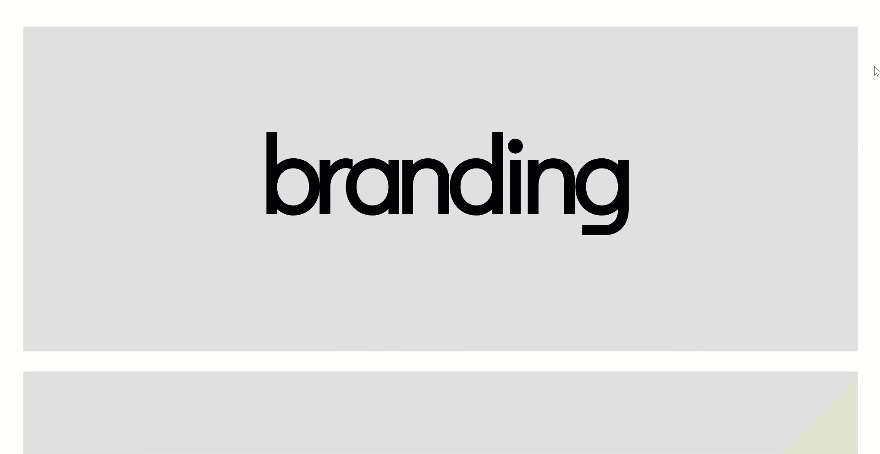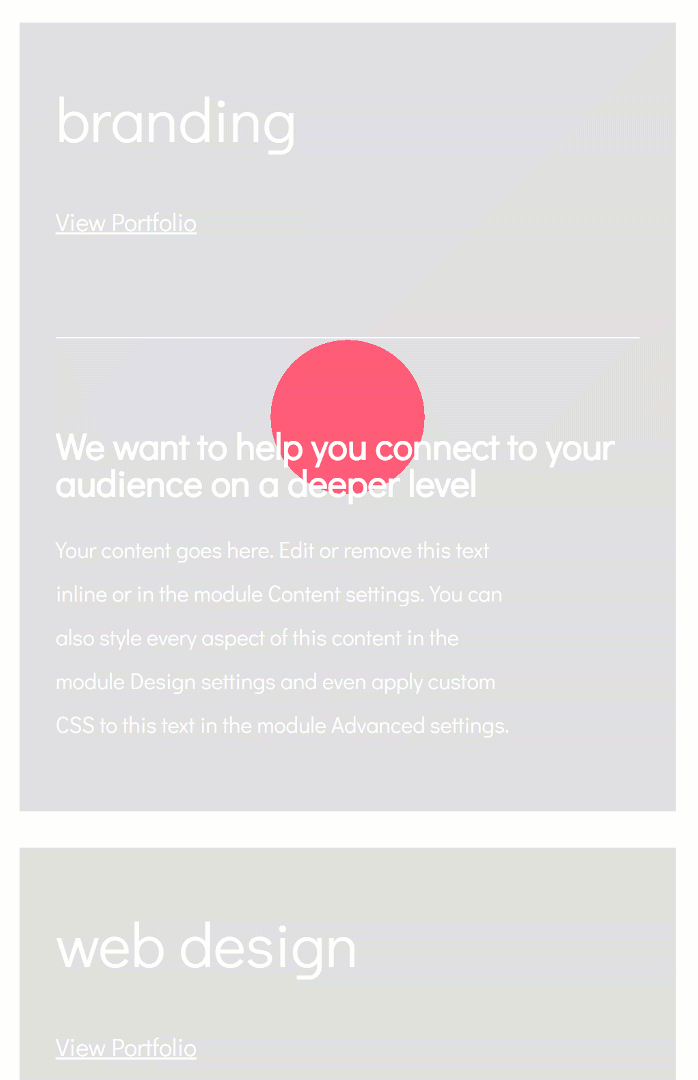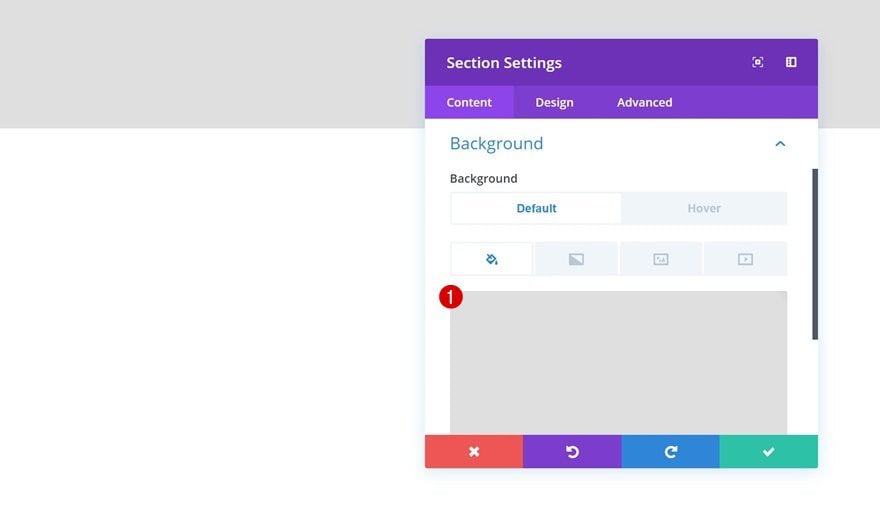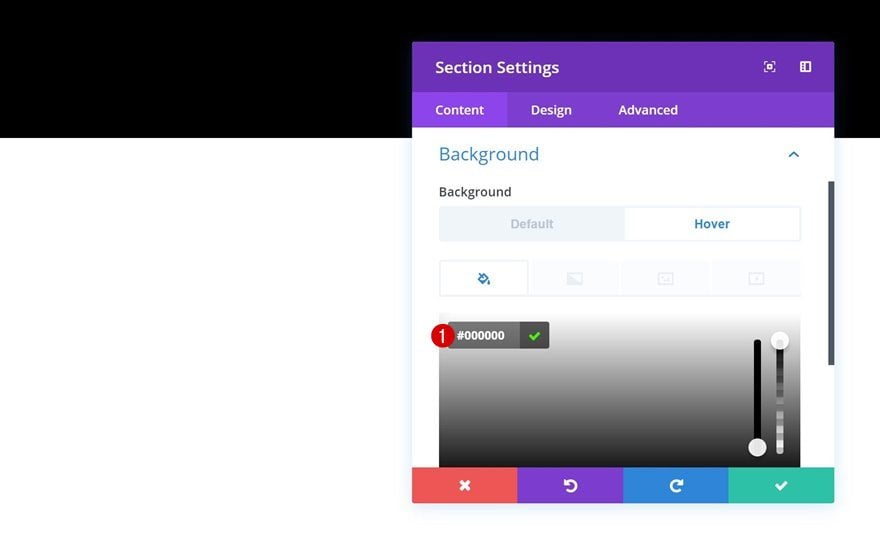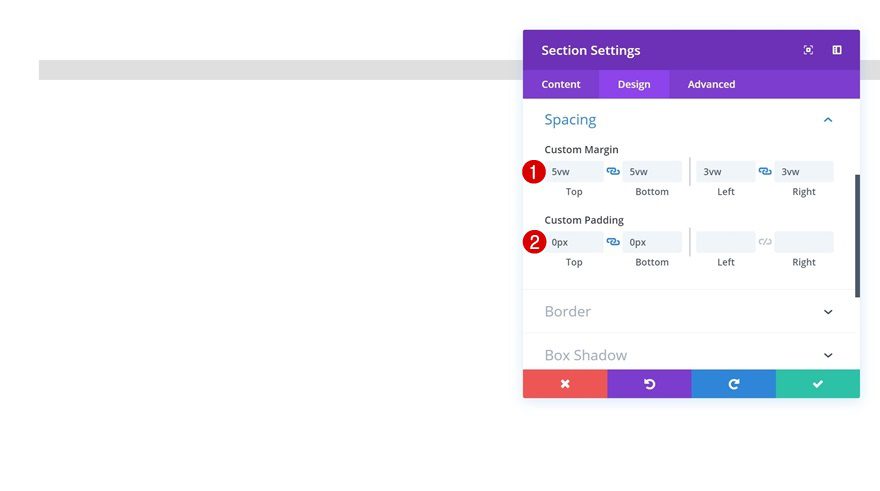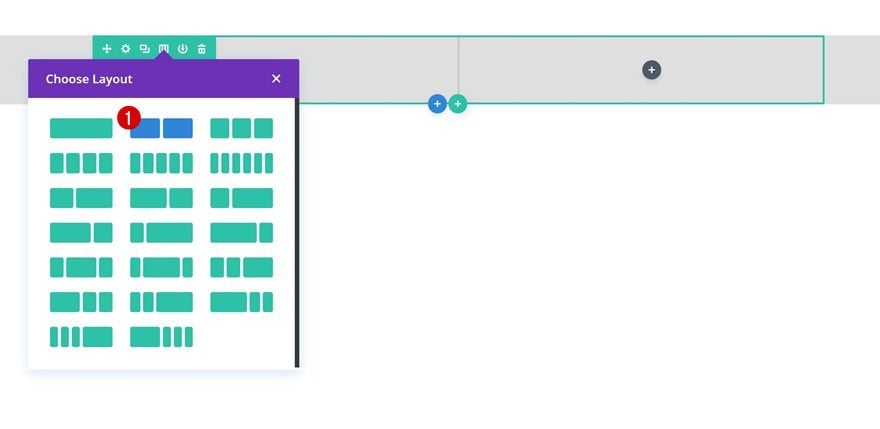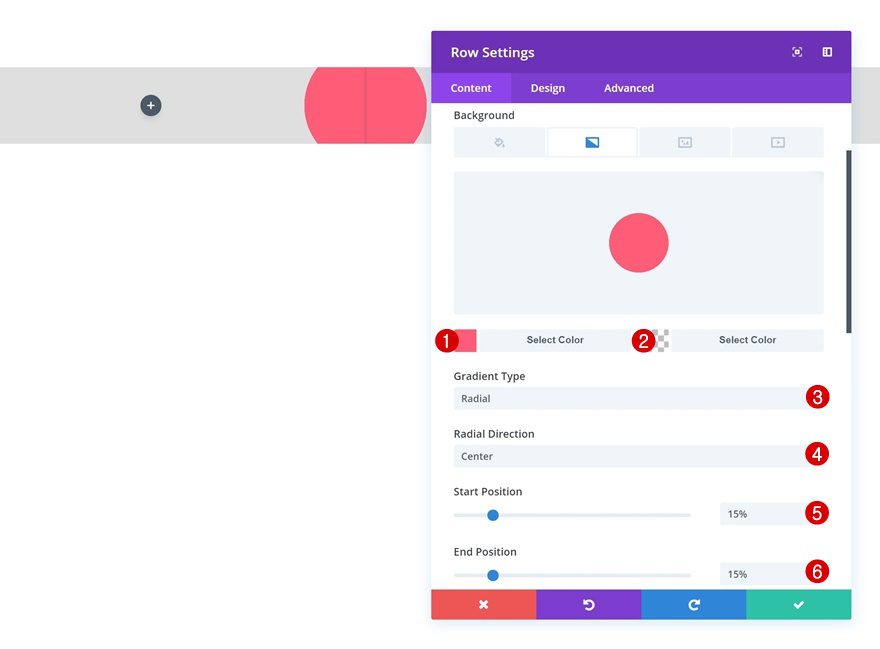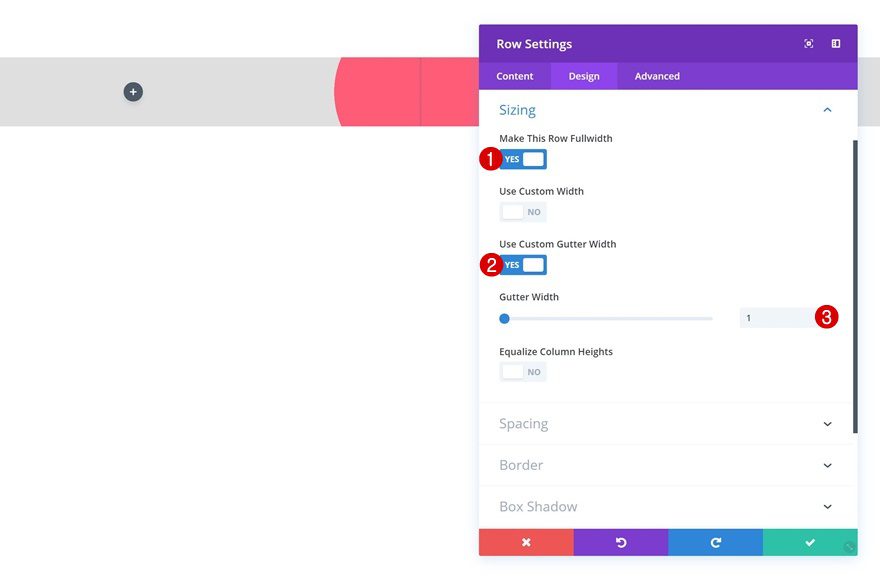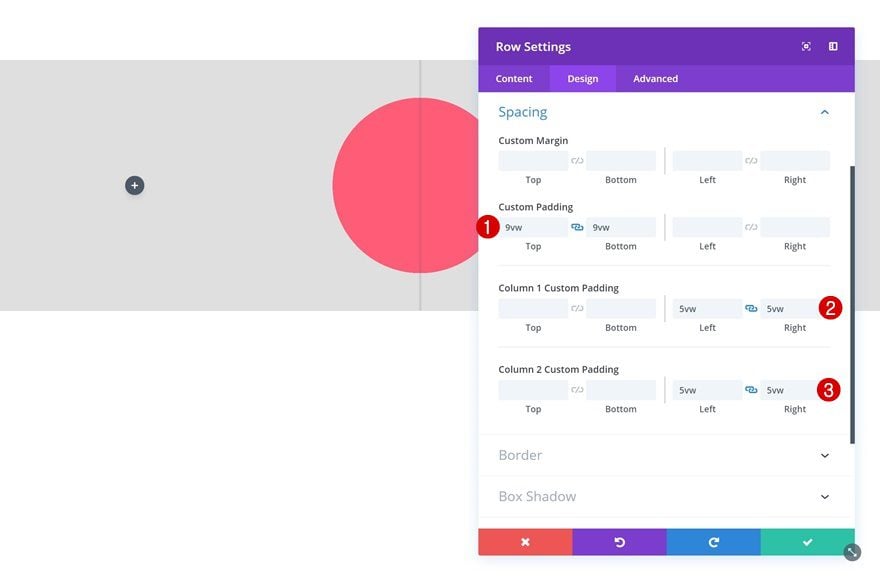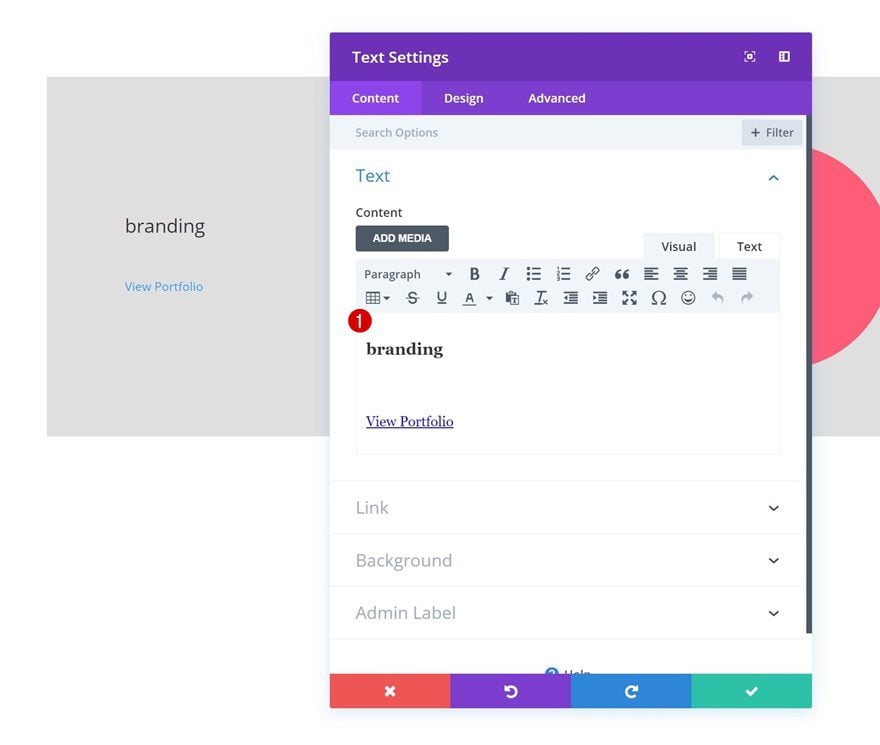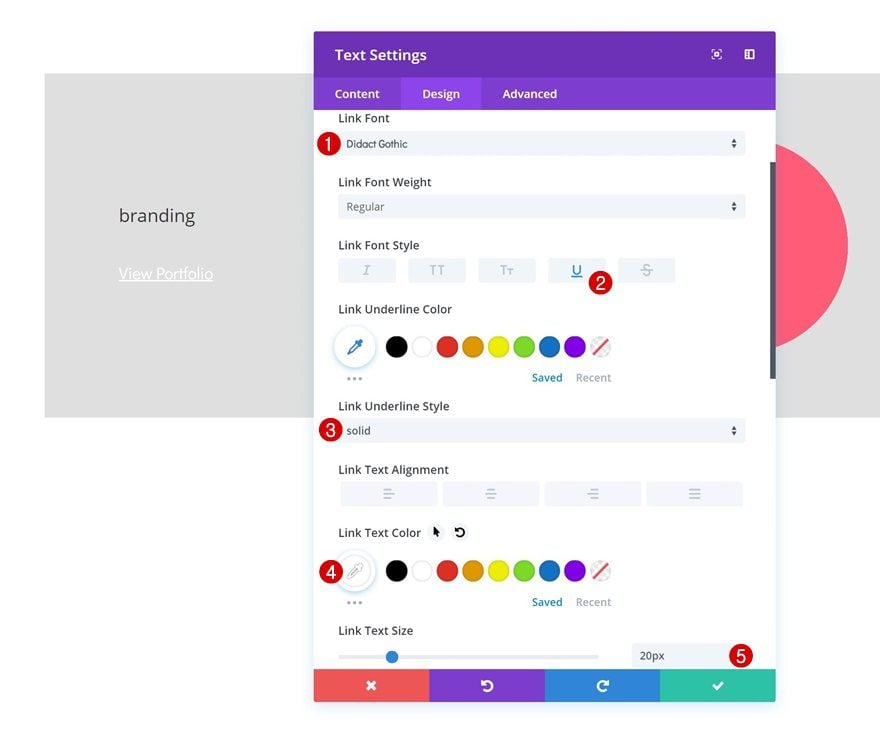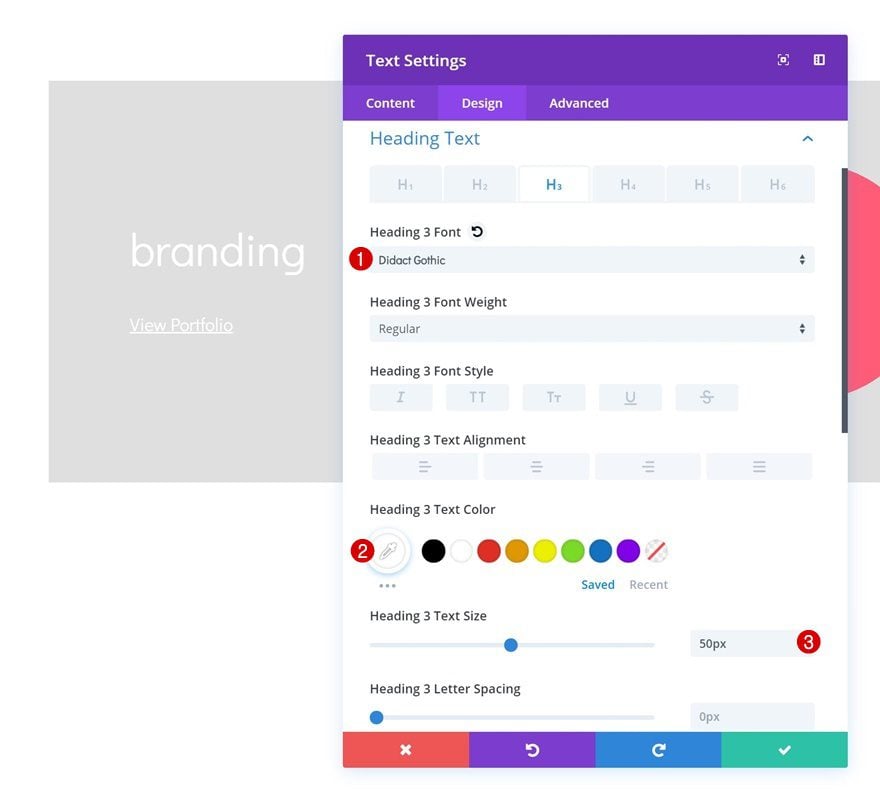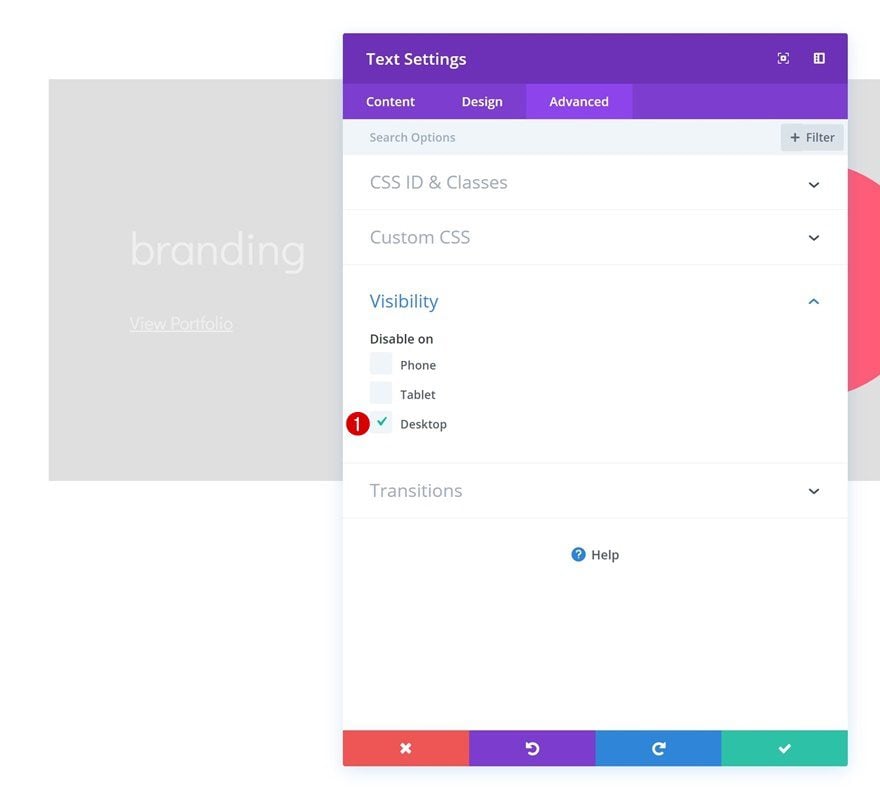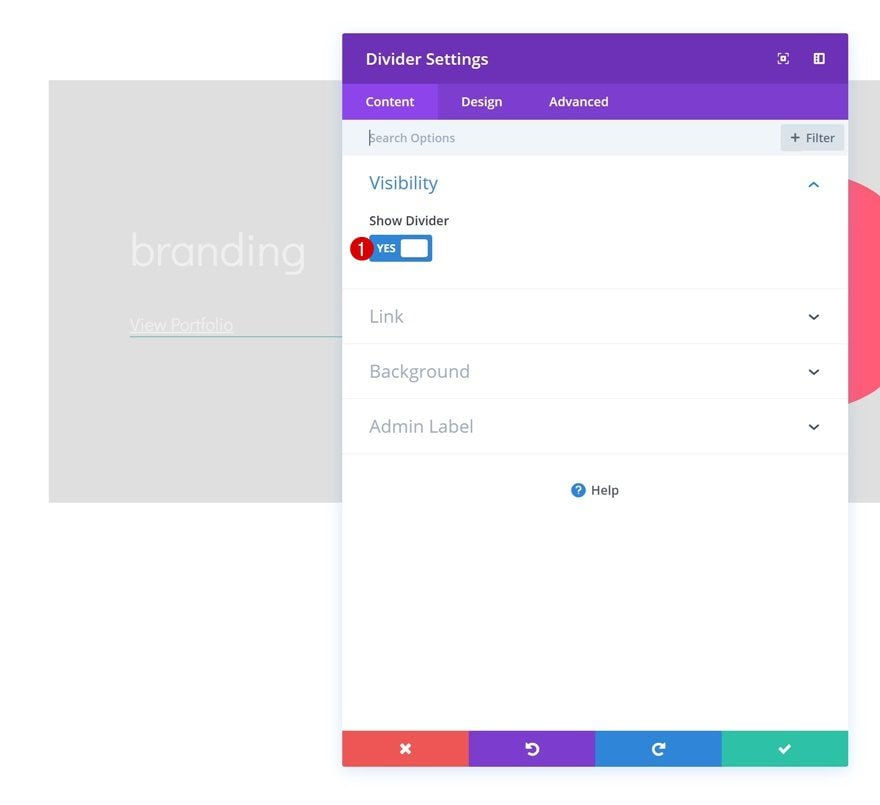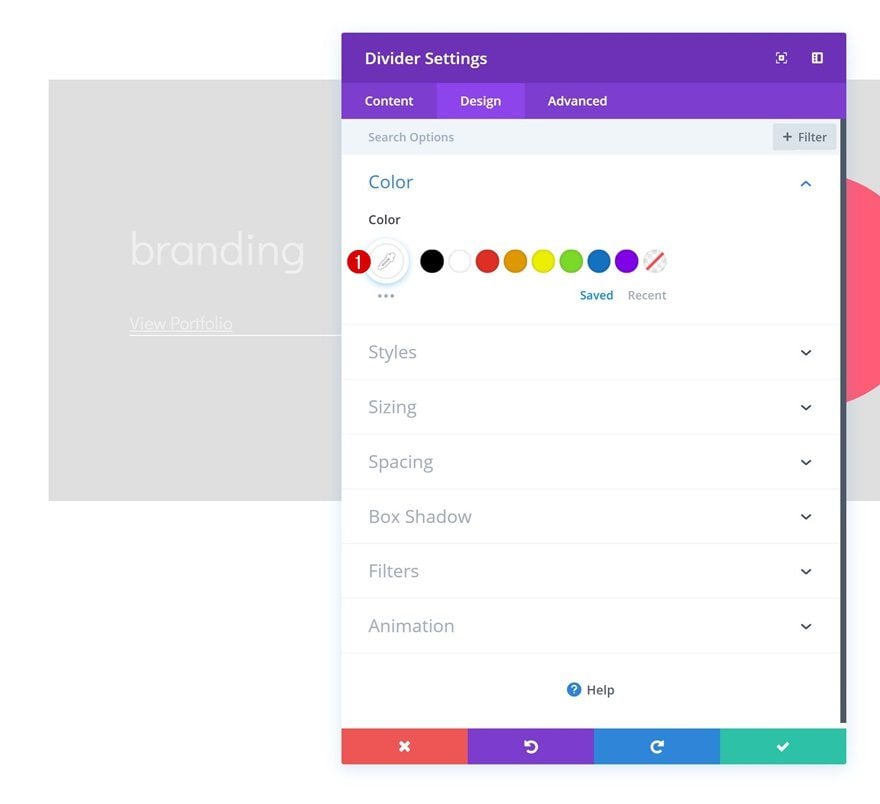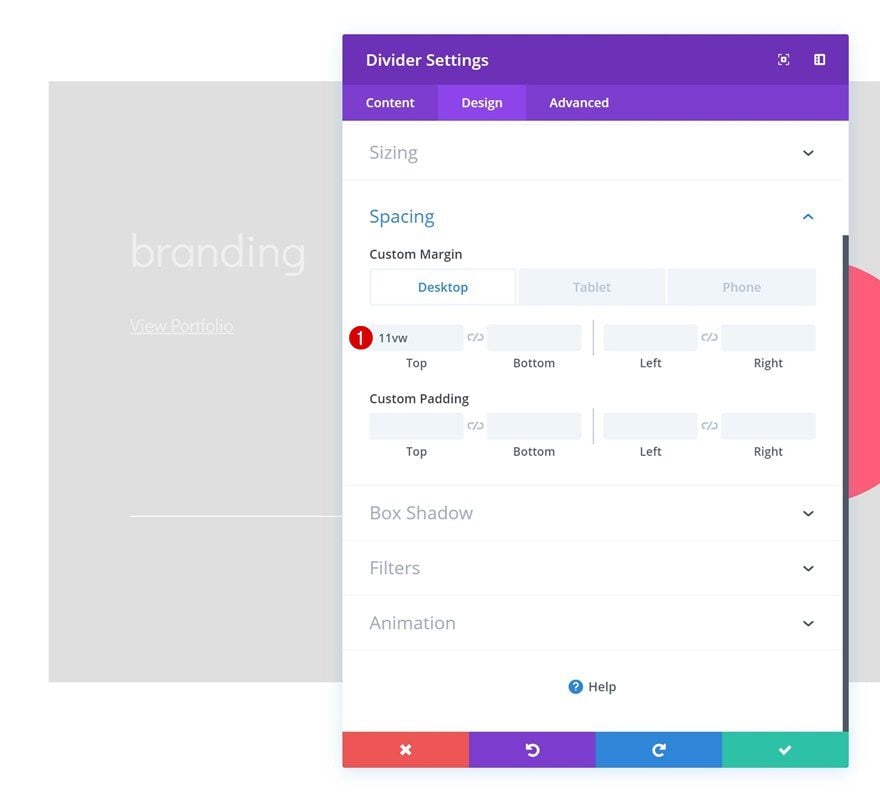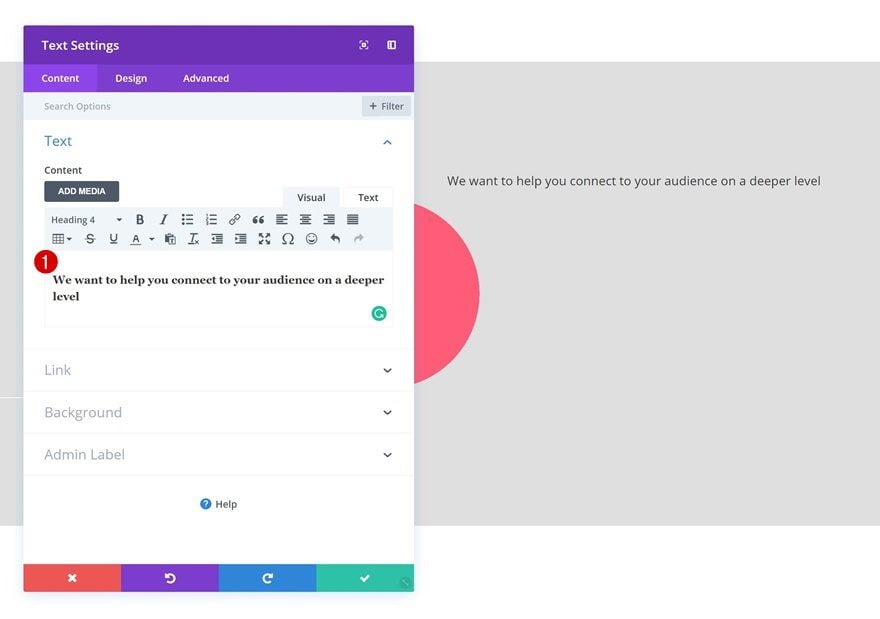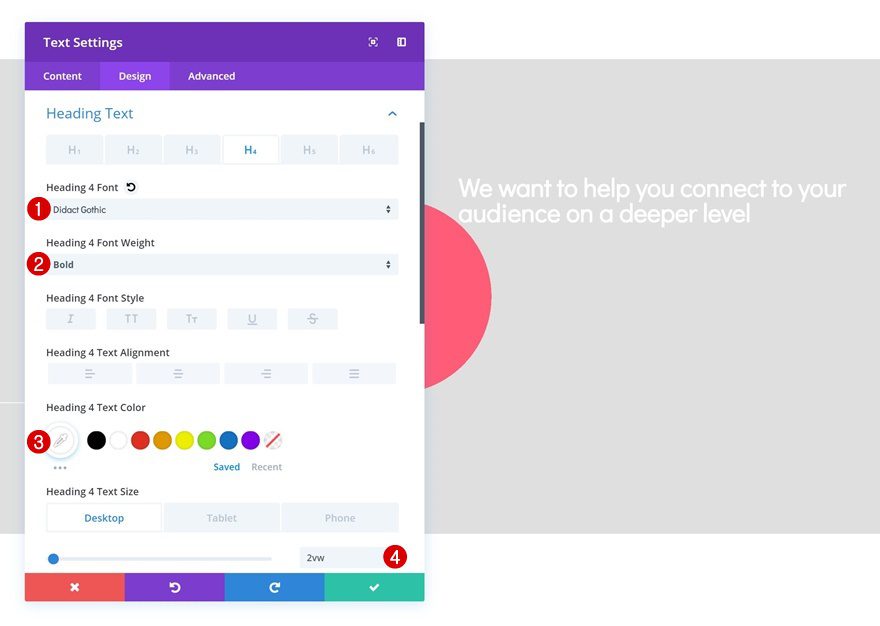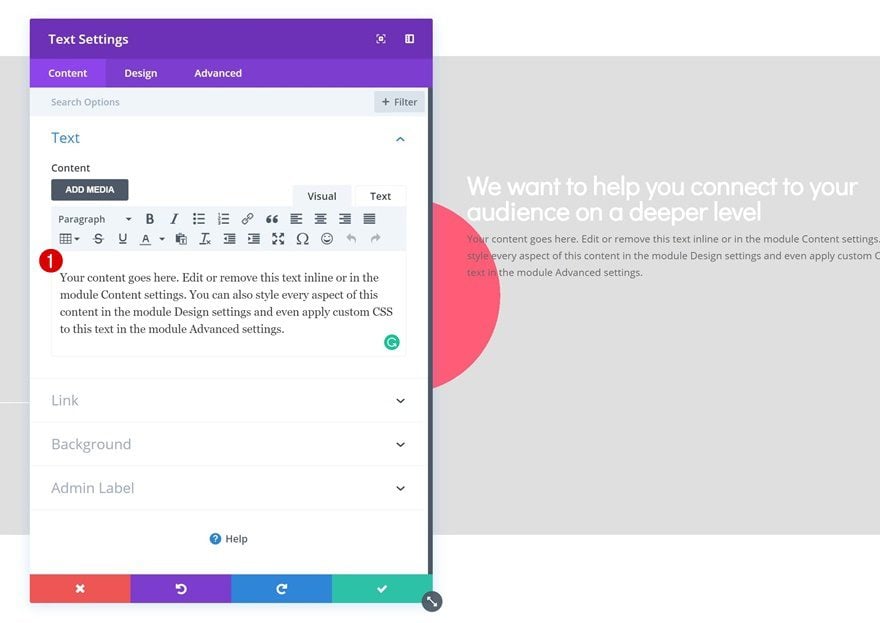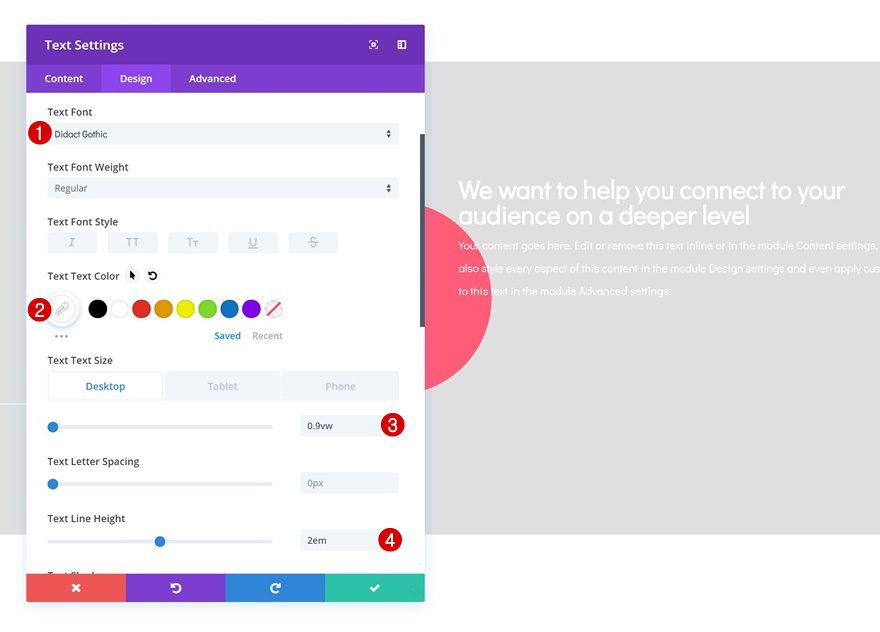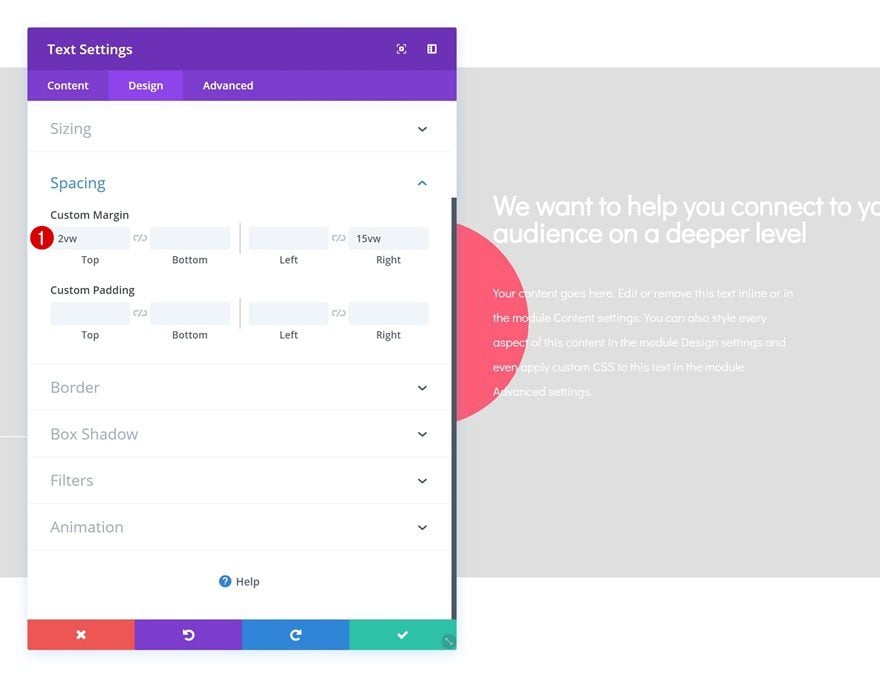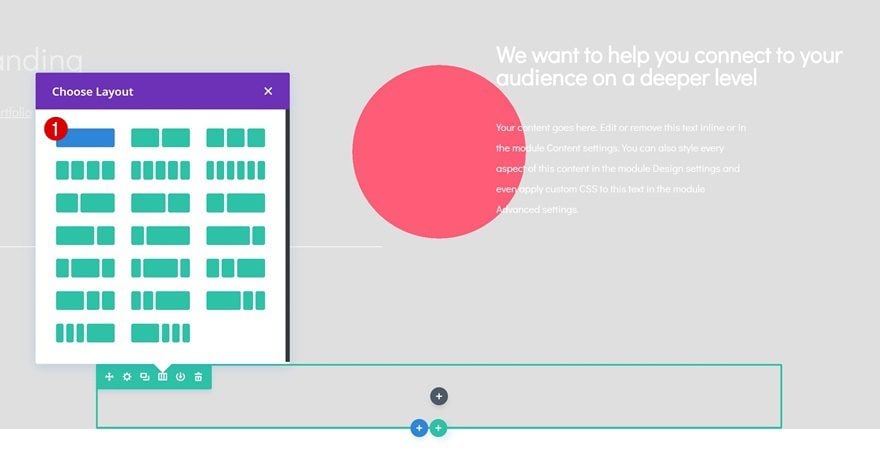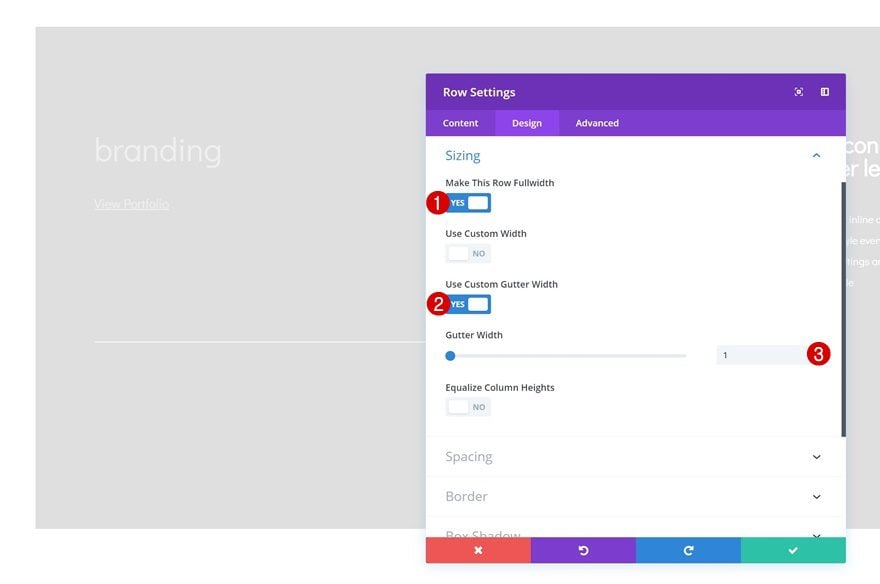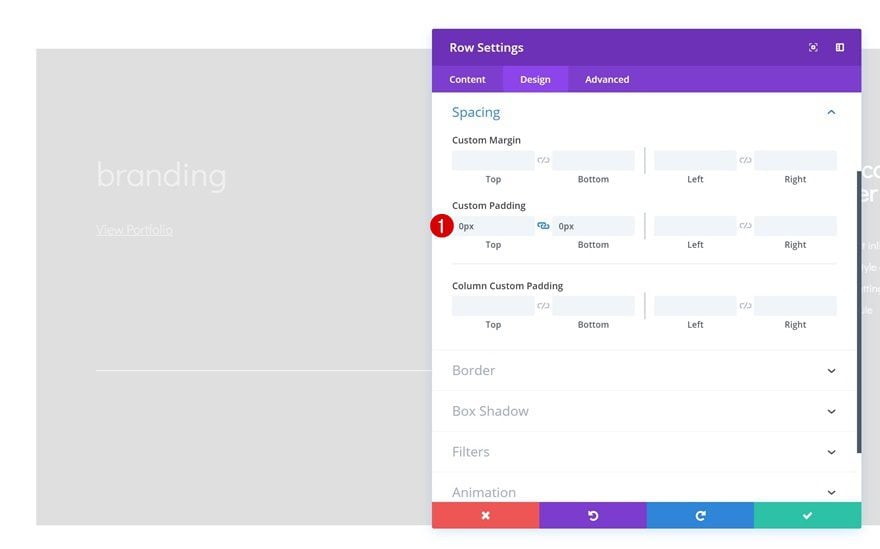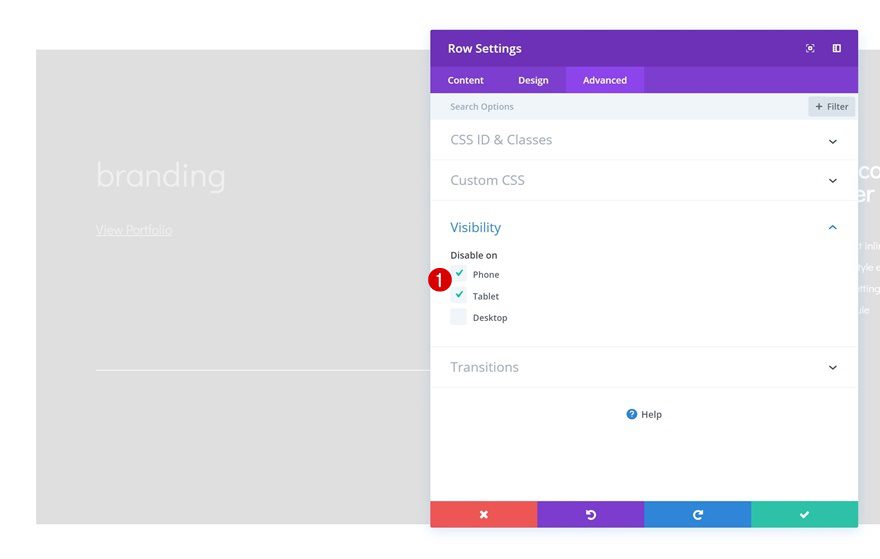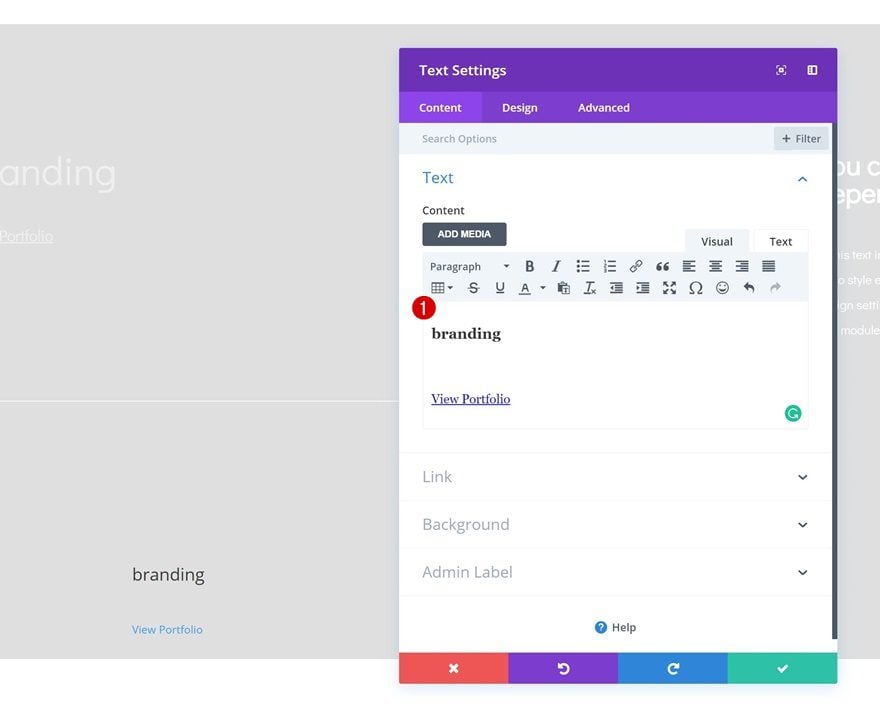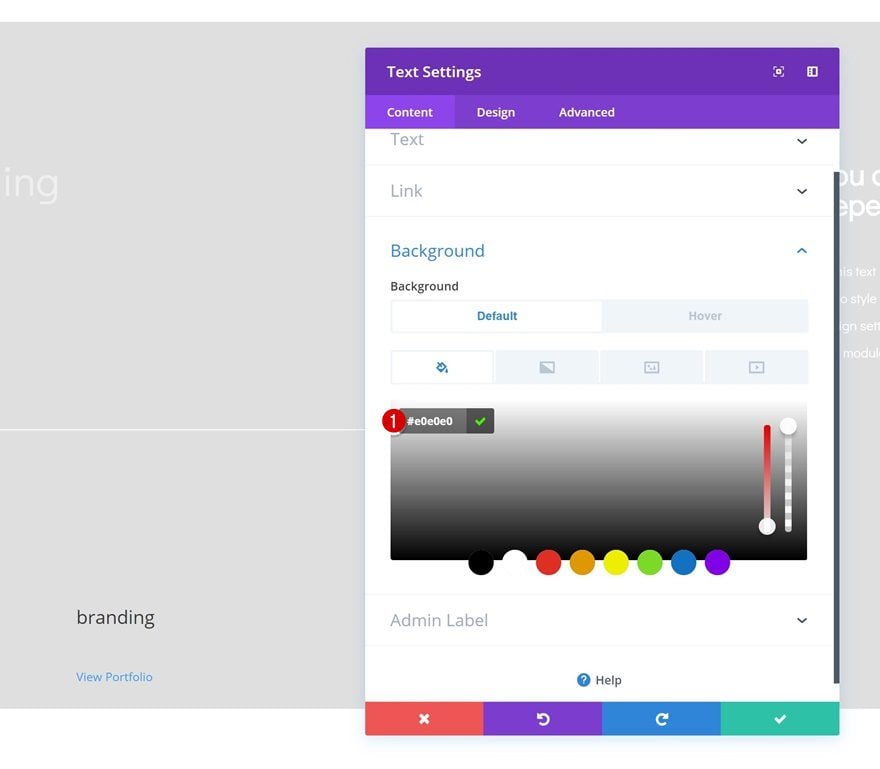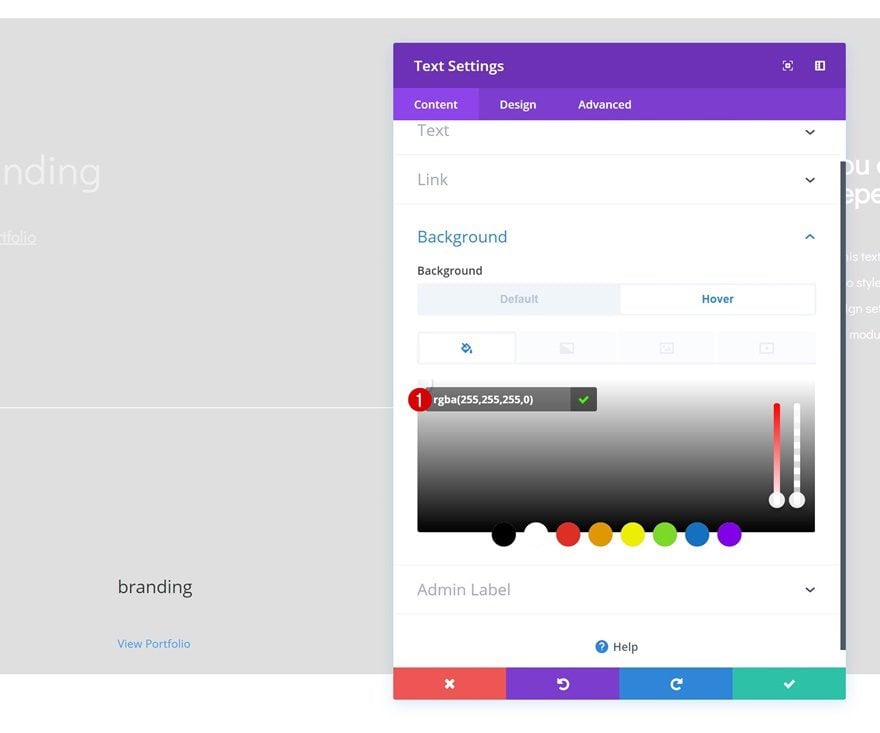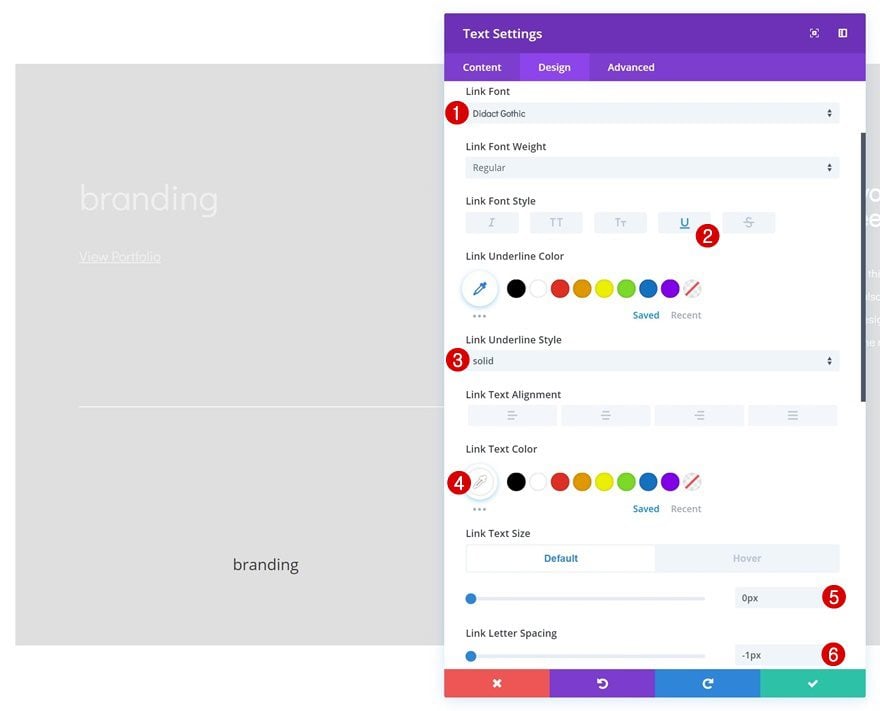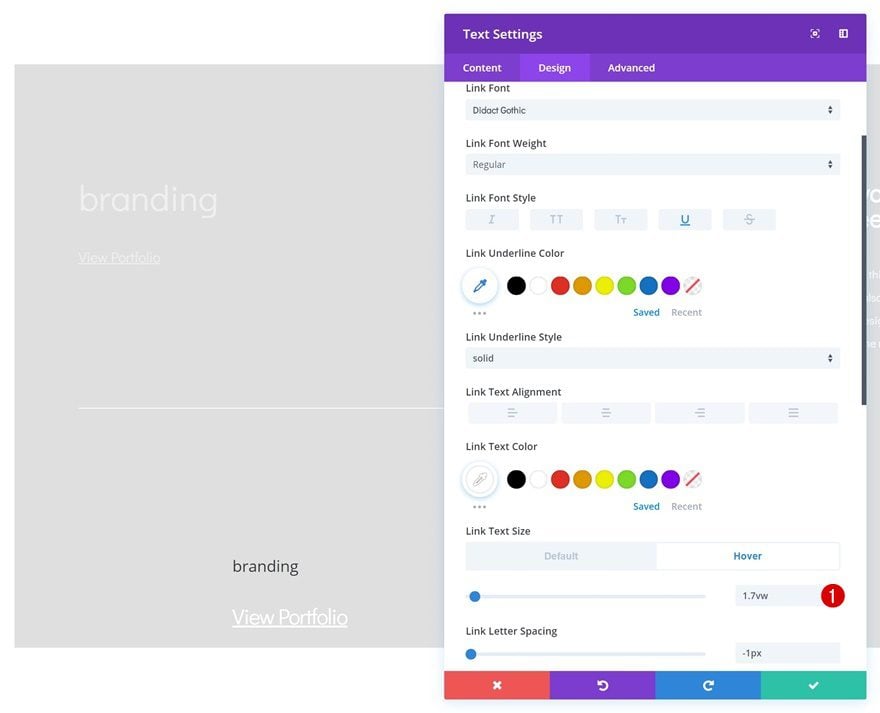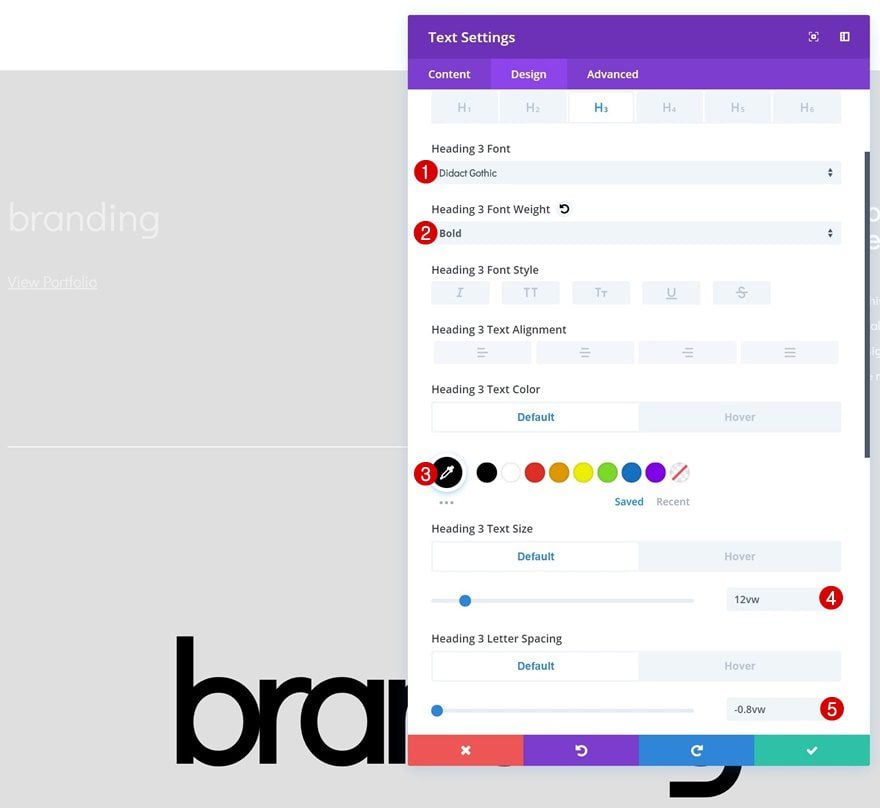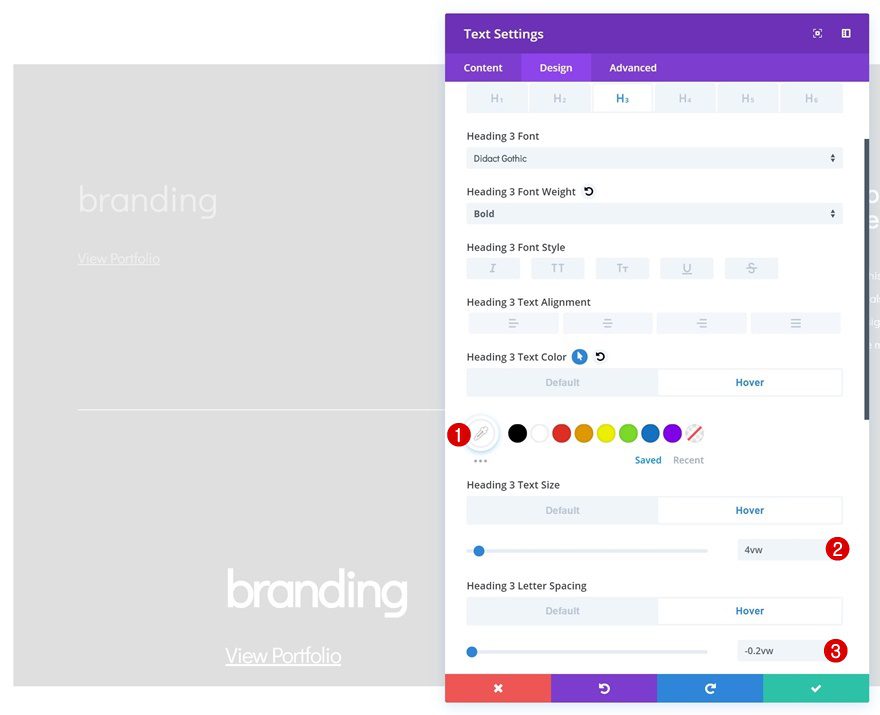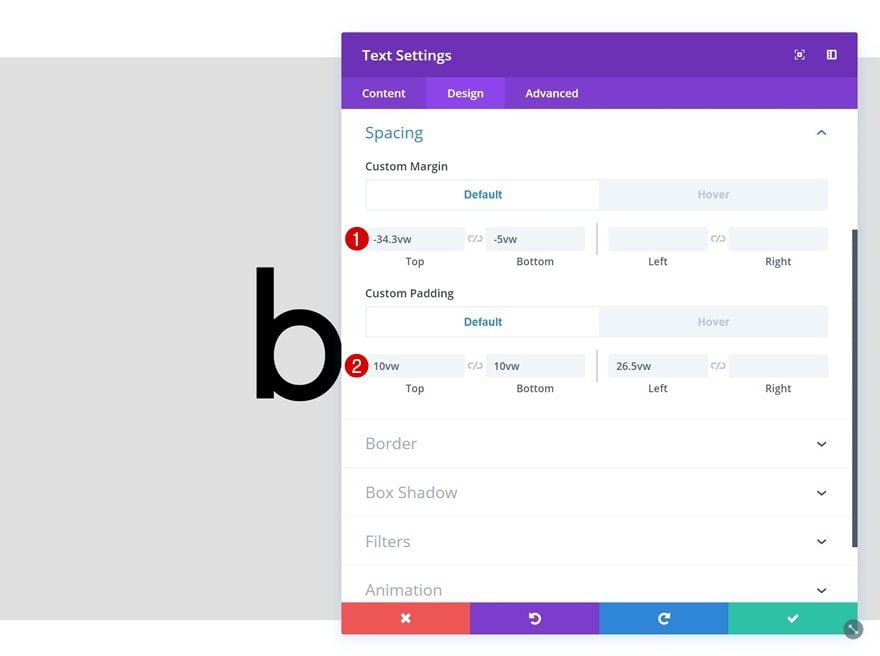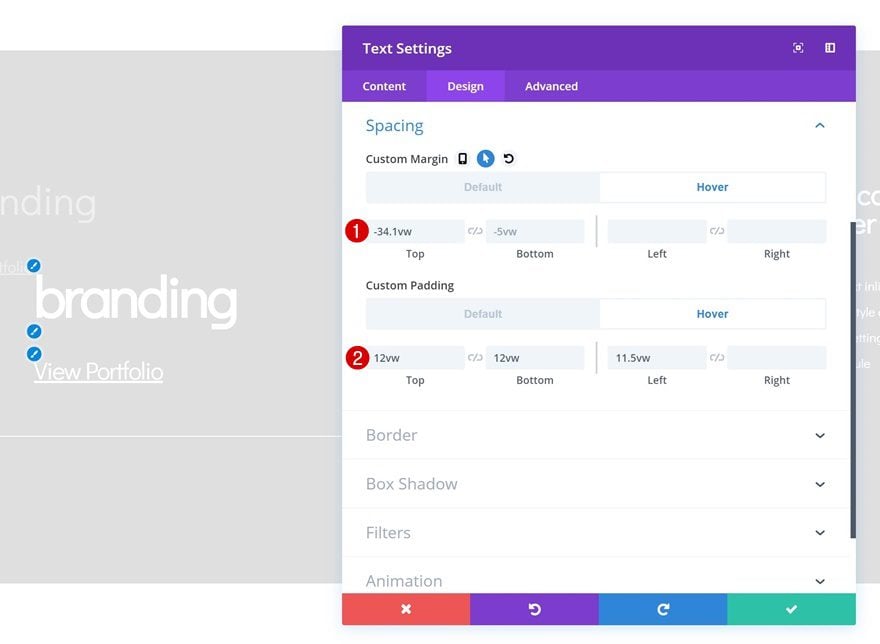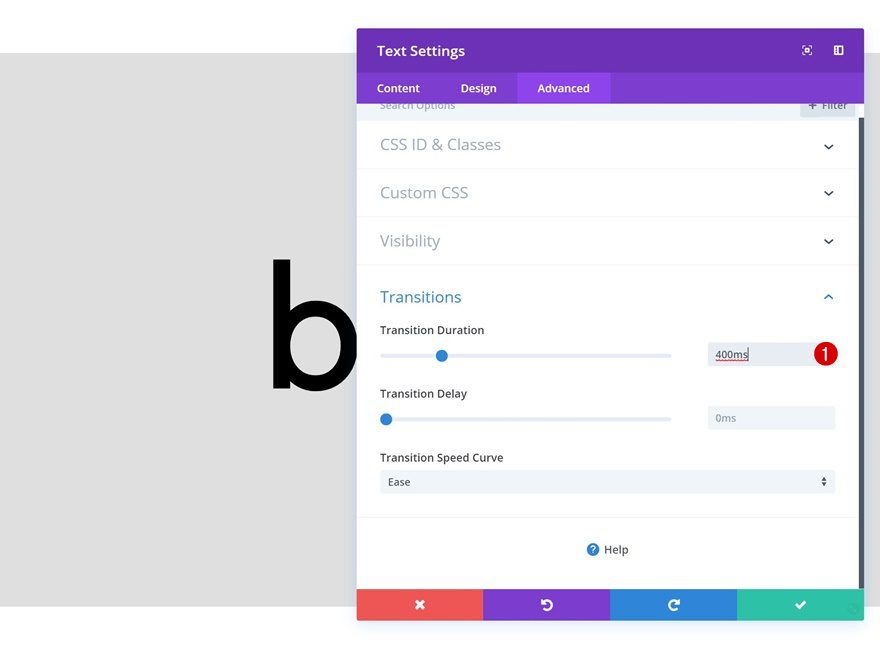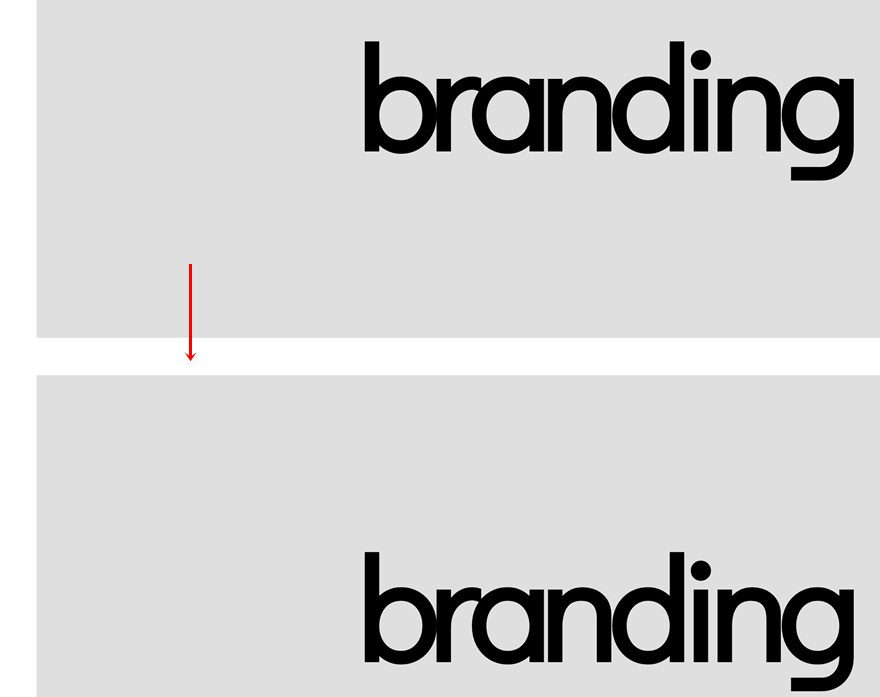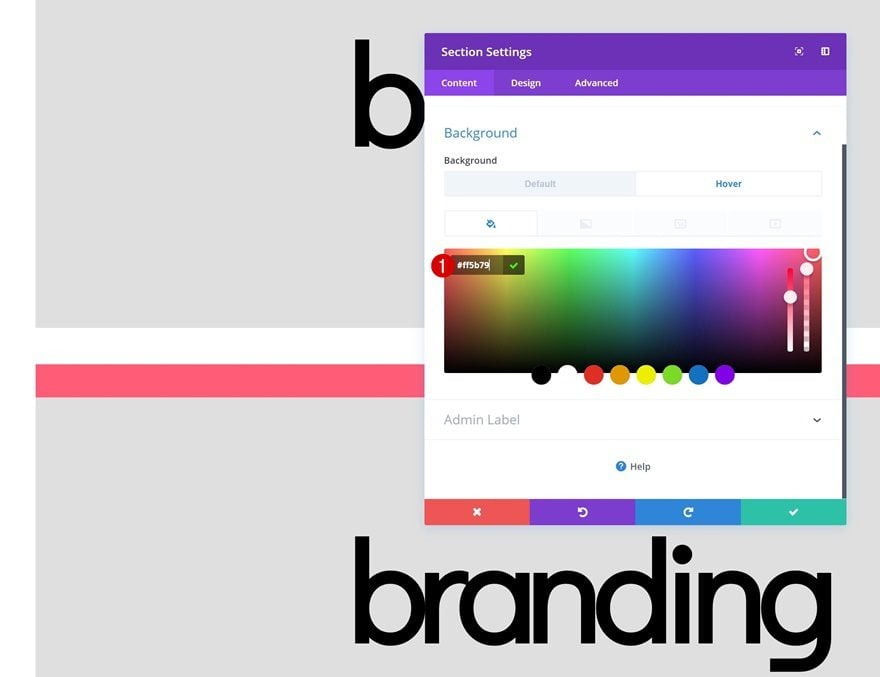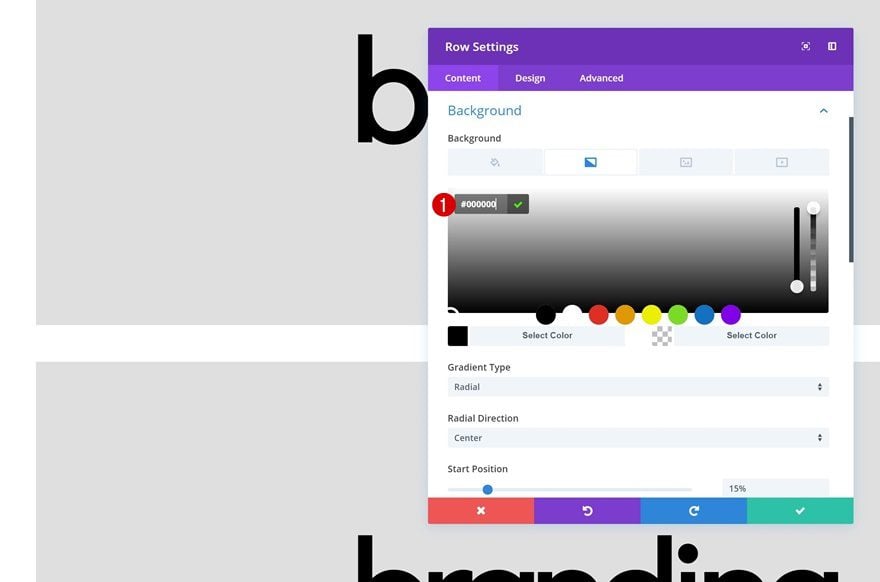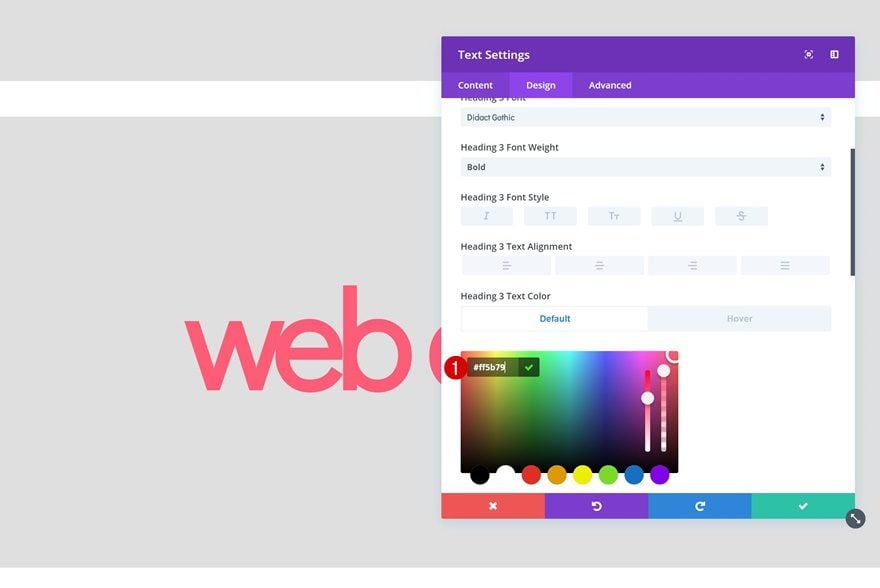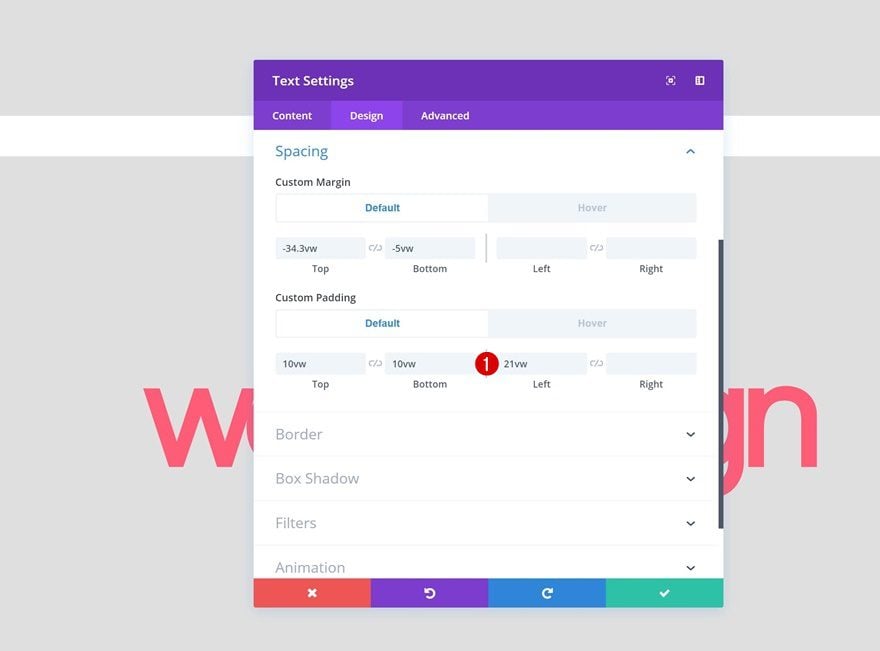Adding subtle interactions to your website can really boost the overall user experience visitors have. One of the things that’ll make your website look that more fancier, while still respecting user-friendliness, is making row content appear on hover. This is a great approach for showcasing services, products, features and more.
In this tutorial, we’ll show you how to create a specific design from A to Z, but once you get the approach, you can make it work for any kind of website you’re working on. At the end of this blog post, we’ll also share the JSON file of this design that you can download for FREE and use without any restrictions.
Let’s get to it!
Preview
Before we dive into the tutorial, let’s take a quick look at the outcome on different screen sizes.
Desktop
Mobile
Let’s Start Creating!
Add New Section
Default Background Color
Start off by adding a new section to a new or existing page and change the section background color.
- Background Color: #e0e0e0
Hover Background Color
Modify this background color on hover.
- Background Color: #000000
Spacing
Move on to the design tab and add some custom spacing values. To make this tutorial work, we’ll only use viewport units. This will help assure that everything stays in place, no matter the screen size.
- Top Margin: 5vw
- Bottom Margin: 5vw
- Left Margin: 3vw
- Right Margin: 3vw
- Top Padding: 0px
- Bottom Padding: 0px
Add Row #1
Column Structure
Continue by adding a new row using the following column structure:
Gradient Background
Without adding any modules yet, open the row settings and add a gradient background.
- Color 1: #ff5b79
- Color 2: rgba(255,255,255,0)
- Gradient Type: Radial
- Radial Direction: Center
- Start Position: 15%
- End Position: 15%
Sizing
Make some changes to the sizing settings of the row as well.
- Make This Row Fullwidth: Yes
- Use Custom Gutter Width: Yes
- Gutter Width: 1
Spacing
And add some custom padding values in the spacing settings.
- Top Padding: 9vw
- Bottom Padding: 9vw
- Column 1 Left Padding: 5vw
- Column 1 Right Padding: 5vw
- Column 2 Left Padding: 5vw
- Column 2 Right Padding: 5vw
Add Text Module to Column 1
Add Content
Time to start adding the modules! The first module we’ll need is a Text Module in column 1. Add H3 content and a link.
Link Text Settings
Then, go to the link text settings and make some changes to the appearance of the link.
- Link Font: Didact Gothic
- Link Font Style: Underline
- Link Underline Style: Solid
- Link Text Color: #ffffff
- Link Text Size: 20px
Heading Text Settings
Modify the H3 text settings as well.
- Heading 3 Font: Didact Gothic
- Heading 3 Text Color: #ffffff
- Heading 3 Text Size: 50px
Visibility
Last but not least, disable the module on desktop. We only need this module to show up on smaller screen sizes.
Add Divider Module to Column 2
Visibility
The second and last module needed in column 1 is a Divider Module. Make sure the ‘Show Divider’ option is enabled.
Color
Then, change the divider color.
Spacing
Add some custom margin values to the Divider Module as well.
- Top Margin: 11vw (Desktop), 80px (Tablet),
- Bottom Margin: 50px (Tablet & Phone)
Add Text Module #1 to Column 2
Add Content
On to the second column! Add a Text Module with some H4 content of choice.
Heading Text Settings
Then, go to the H4 text settings and make some changes.
- Heading 4 Font: Didact Gothic
- Heading 4 Font Weight: Bold
- Heading 4 Text Color: #ffffff
- Heading 4 Text Size: 2vw (Desktop), 40px (Tablet), 30px (Phone)
Add Text Module #2 to Column 2
Add Content
Right below the previous Text Module, go ahead and add another one with some paragraph content of choice.
Text Settings
Go to the text settings next and make some changes.
- Text Font: Didact Gothic
- Text Color: #ffffff
- Text Size: 0.9vw (Desktop), 18px (Tablet & Phone)
- Text Line Height: 2em
Spacing
Add some custom margin values too.
- Top Margin: 2vw
- Right Margin: 15vw
Add Row #2
Column Structure
Once you’re done modifying the first row and all of its modules, you can go ahead and add a new row using the following column structure:
Sizing
Without adding any modules yet, open the row settings and make some changes to the Sizing settings.
- Make This Row Fullwidth: Yes
- Use Custom Gutter Width: Yes
- Gutter Width: 1
Spacing
Remove all default padding in the row spacing settings as well.
- Top Padding: 0px
- Bottom Padding: 0px
Visibility
Last but not least, hide this row on tablet and phone.
Add Text Module to Column
Add Content
The only module we need in this row is a Text Module. Add some H3 content and a link.
Default Background Color
Then, go to the background settings and add a background color to the Text Module.
- Background Color: #e0e0e0
Hover Background Color
Modify this background color on hover.
- Background Color: rgba(255,255,255,0)
Default Text Settings
Next, go to the text settings and make some changes.
- Link Font: Didact Gothic
- Link Font Style: Underline
- Link Underline Style: Solid
- Link Text Color: #ffffff
- Link Text Size: 0px
- Link Letter Spacing: -1px
Hover Link Text Settings
Modify the link text size on hover as well.
Default Heading Text Settings
Continue by making some changes to the H3 text settings.
- Heading 3 Font: Didact Gothic
- Heading 3 Font Weight: Bold
- Heading 3 Text Color: #000000
- Heading 3 Text Size: 12vw
- Heading 3 Letter Spacing: -0.8vw
Hover Heading Text Settings
Modify some of the H3 text settings on hover.
- Heading 3 Text Color: #ffffff
- Heading 3 Text Size: 4vw
- Heading 3 Letter Spacing: -0.2vw
Spacing
Then, go to the spacing settings and add some custom margin and padding values.
- Top Margin: -34.3vw
- Bottom Margin: -5vw
- Top Padding: 10vw
- Bottom Padding: 10vw
- Left Padding: 26.5vw
Hover Spacing
Modify the spacing values on hover.
- Top Margin: -34.1vw
- Bottom Margin: -5vw
- Top Padding: 12vw
- Bottom Padding: 12vw
- Left Padding: 11.5vw
Transitions
Increase the transition duration of the Text Module as well.
- Transition Duration: 400ms
Clone Section
Once your first section is completed, go ahead and clone the entire section up to as many times as you want. In the next part of the tutorial, we’ll show you the changes you need to make to each duplicate.
Change Section Hover Background Color
The first thing you’ll need to modify is the section hover background color.
- Background Color: #ff5b79
Change Row #1 Gradient Background
Change the row #1 gradient background as well.
Change Text Color & Copy
Along with the text color and all the copy.
- Heading 3 Text Color: #ff5b79
Change Text Module Spacing
Last but not least, change the left padding of the Text Module in row #2. The amount of left padding you’ll need to use depends on the length of the content you’re using.
Download The Layout for FREE
To lay your hands on the layout, you will first need to download it using the button below. To gain access to the download you will need to subscribe to our newsletter by using the form below. As a new subscriber, you will receive even more Divi goodness and a free Divi Layout pack every Monday! If you’re already on the list, simply enter your email address below and click download. You will not be “resubscribed” or receive extra emails.
Preview
Now that we’ve gone through all the steps, let’s take a final look at the outcome on different screen sizes.
Desktop
Mobile
Final Thoughts
In this post, we’ve shown you how to reveal hidden row content on hover. The outcome we’ve created is made using Divi’s built-in options only. We’ve also shared the JSON file at the end of the tutorial which will hopefully help you create your own alternative designs as well. If you have any questions or suggestions, make sure you leave a comment in the comment section below!


